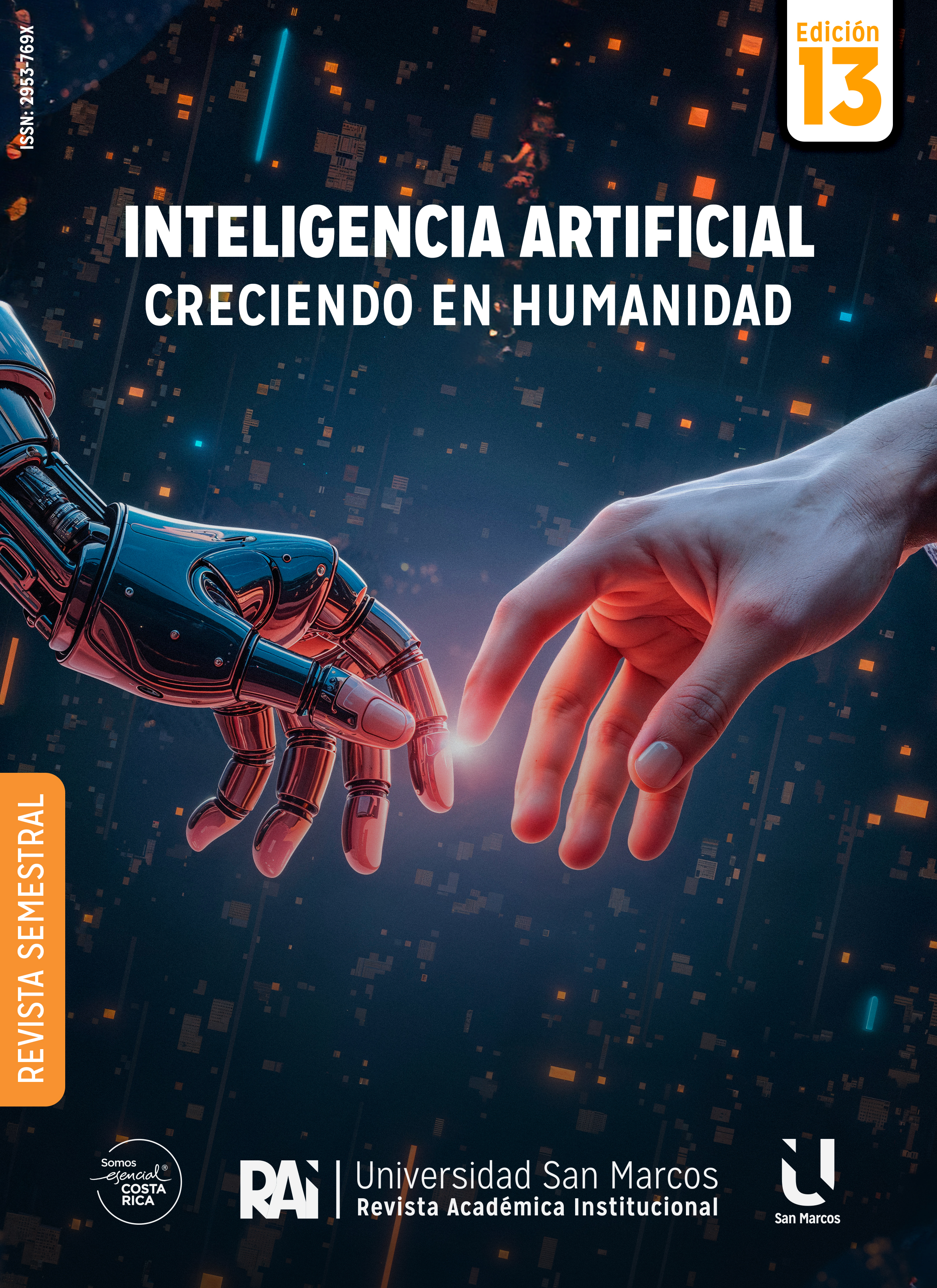Artificial Intelligence and digital transformation from university faculties: challenges, approach, and goals
DOI:
https://doi.org/10.64183/pb4jg646Keywords:
Digital transformation, Artificial intelligence, Technological literacyAbstract
Artificial intelligence (AI) and digital transformation are undoubtedly two significant topics that impact individuals' professional and occupational spheres and, consequently, the academic field as well. From their academic formation, it is essential for professionals to explore, manage, and master, to the highest possible level, the technological tools that facilitate the performance of their roles. Artificial intelligence, in addition to being one of the most advanced technological developments, is the prevailing technological trend being integrated into organizational, academic, and even personal activities. Digital transformation, on the other hand, is a continuous process that organizations face regardless of the sector in which they operate, and it is both enhanced and shaped by technological advancements. University faculties face considerable challenges in this context: to train well-rounded professionals in their specific technical fields and, simultaneously, to provide digital and technological literacy that enables them to enter the job market and to significantly contribute to the transformation of their respective areas through the implementation of technologies and systems.
Downloads
References
Alarcón López, L., Henríquez, P., Moreno, K., Saboin, J., Vargas, F., & Araya, F. (2023). Productive transformation and business digitalization in the Andean region. Monograph: New Horizons of Productive Transformation in the Andean Region.
Briano, C. (2024). The digital transformation of businesses: Conceptual notes. Buenos Aires: Briano.
Carreras, R., Grau, F., & Velilla, J. (2011). Business management in a digital environment. Catalonia: Open University of Catalonia.
Gómez Torres, M. (2016). The role of digital literacy in the employability of older workers. Píxel-Bit. Journal of Media and Education, 49, 25–38.
Medina Chicaiza, P., Chango Guanoluisa, M., Corella Cobos, M., & Guizado Toscano, D. (2022). Digital transformation in companies: A conceptual review. Journal of Science and Research, 7(2), 756–769.
Muñoz Garro, E. (2024). The influence of technology on global leadership: Enhancing skills and capacities in a digitized business environment. e-Ciencias de la Información, 14(1).
Urdaneta Montiel, A., Pitre Redondo, R., & Hernández Palma, H. (2018). Knowledge management through digital literacy as a strategy for educational transformation in a context of peace. Saber, Ciencia y Libertad, 13(2), 201–215.
Downloads
Published
Issue
Section
License
Copyright (c) 2025 Revista Académica Institucional

This work is licensed under a Creative Commons Attribution-NonCommercial-NoDerivatives 4.0 International License.










